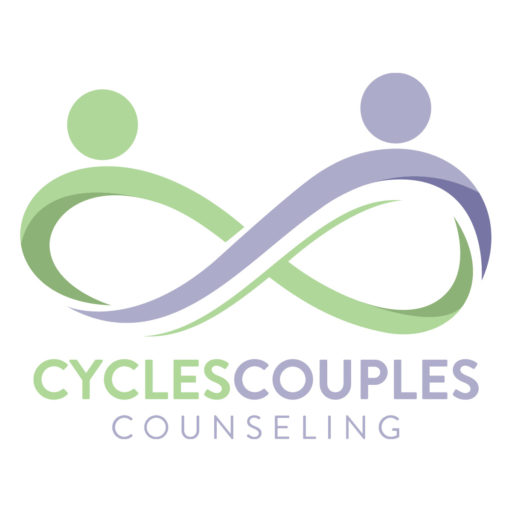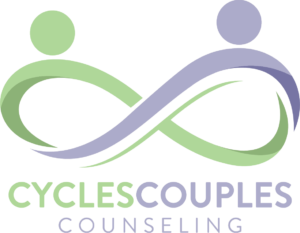How do we know when we're ready?
Good question--How do you know when you are ready to stop couples therapy? Knowing when to end therapy takes careful planning. You, your partner and your therapist should take special consideration in deciding to wrap up couples counseling. Here we will offer some milestones and goals most therapists aim for in deciding to graduate clients from EFT Couples therapy.
For some couples, counseling is a necessary health appointment like check ups at the dentist, not enjoyable, but definitely necessary. They want to get done as quickly and efficiently as possible. For others counseling is a more comfortable space and the decision to stop going can feel like a breakup.
Whether its racing to end as soon as possible, or lingering too long, timing the perfect conclusion to therapy requires important consideration.
What do Emotionally Focused Therapists Look For?
Emotionally Focused Therapy (EFT) isn’t like the couples therapy you may see on TV or in movies. This is a very specific research based approach which generally goes deeper emotionally than traditional behavior based therapy. Because this is simply not instruction and homework, and it relies on the emotional variability of each couple, EFT may take a little longer. The goal is meaningful lasting changes in how you and your partner relate.
EFT works in two general parts. First, a couple must identify and understand their negative cycle of interactions. Then, they must learn to reach to each other in new deeper ways that sidestep this reactivity and ultimate disconnection.
Far from prescribed statements and phony exercises, EFT drives to create more genuine intimate interactions. With an EFT therapist you won’t have to complete worksheets with your partner or memorize responses you learned in session. Throw those I statement worksheets down the drain! This goes must more in depth.
How does this counseling process work?
Research has proven that couples in crisis rarely remember worksheets or communication exercises. When they’re in relationship distress, logic and reasoning is out the window and they are in survival mode!
A fight with your partner will quickly kick you into fight or flight mode. Remember, they are one of the most important things in your life and your system knows this. Unfortunately, while these survival instincts might be great for escaping a burning building or fending off a robber, rarely will this extreme avoid or attack help you bring your partner closer.
With EFT you will learn to identify what’s underneath this reactivity and fully express this to your partner. This requires a sufficient amount of time in order to de-escalate and understand what’s happening in this negative pattern you get stuck in. You’ve got to slow it down to make sense of it.
Once you and your partner have taken the time to fully understand the depth of your interactions, the next task is to understand the roots of where this comes from--your views of yourself and your partner. Through this you can begin to reach differently to them for comfort and create a new more intimate bond.
Ending Counseling Too Early
You know the old saying, haste makes waste. Not so fast…
But we’ve been to therapy for some time now and we’re doing better. It feels fixed. I don’t think we need to come anymore.
Yes, it can feel empowering to really get how you and your partner get stuck in these negative cycles. It can even push you to think therapy might not be necessary any longer, however, your work isn’t complete.
What we know about negative cycles is that appear in times of high stress or crisis. While you and your partner might be getting along better, you can predict as life throws you lemons this tenacious pattern could likely re-emerge.
For example, the cycle you had coordinating stressful wedding plans could re-emerge again as you battle those sleepless nights after your first child.
Remember, understanding your negative cycle and learning how to de-escalate with your partner is only the first stage. Yes, your round of antibiotics may be finished, but let’s explore how you got this infection in the first place. Prevention and early detection are key factors in maintaining connection with your partner.
You wouldn’t just chop all the weeds down and call your garden bed clean. You have to get to the root of the issue. One of the reason EFT has such lasting results years after therapy is because partners have learned to address and heal core issues that fuel these negative patterns of interaction.
Traditional EFT therapy will focus on helping you reach to your partner and express these core fears long after your negative cycle has disappeared. EFT requires the time to help you identify and understand these vulnerable spaces and more importantly learn how to reach to your partner for comfort in them.
Congratulations! It’s time to graduate!
Every couples therapy experience is unique. For some couples this is the only time out of their bustling work and family lives to actually focus solely on their relationship and make time to connect. This special time can be difficult to give up.
Yeah we are doing better, but something might pop up in the future and it’s nice to have these check ins.
Our therapist has been so helpful, I wish we could take her with us.
While it’s probably very flattering for your therapist that you want to stay in therapy, the healthiest option is for you and your partner to take the reins on maintaining your connection. At this point, you are the best people to be taking care of it and you no longer need to depend on their facilitation.
A therapist is constantly talking themselves out of a job. Their goal is to help you and your partner make and maintain this intimate relationship on your own.
It’s never beneficial to leave counseling too early, however, it’s not in your best interest to stay beyond your need either.
EFT therapists empower their clients to become more aware of their emotional experience and help them to express this to their partner. This creates a new more intimate cycle of interaction, where a counselor is no longer necessary.
But, we’re nervous to end therapy!
That makes perfect sense. Going to therapy has been your routine and leaving is a big step. Remember a therapist would never terminate sessions before they saw proof that you and your partner were creating and maintaining more secure interactions.
It’s time for you to build confidence in your capabilities. Trust your partner. Trust yourself. Trust your therapist. It’s time to say goodbye.
What does ending therapy look like?
If you haven’t gotten the message already, it’s very important that you take time to process this decision with your therapist.
This isn’t something that a therapist would spring on you at the end of a last session. Typically, you might take a session or two to wind down and consolidate your progress.
One crucial part of your wrapping up process is a graduation session. This serves to help you and your partner process your journey in therapy and celebrate all your gains. This closure is an important step in building confidence in your relationship to stand on its own.
Don’t forget--most therapists have an open door policy, meaning you are always welcome back for a tune up session or to process a big transition in the future should you need it. Fortunately enough, after most couples complete emotionally focused therapy, they have such a secure and strong bond they seem to weather storms on their own quite well.
If you're interested in hearing more about Couples Therapy, schedule a free consultation!
Learn more about Couples Therapy in California.

